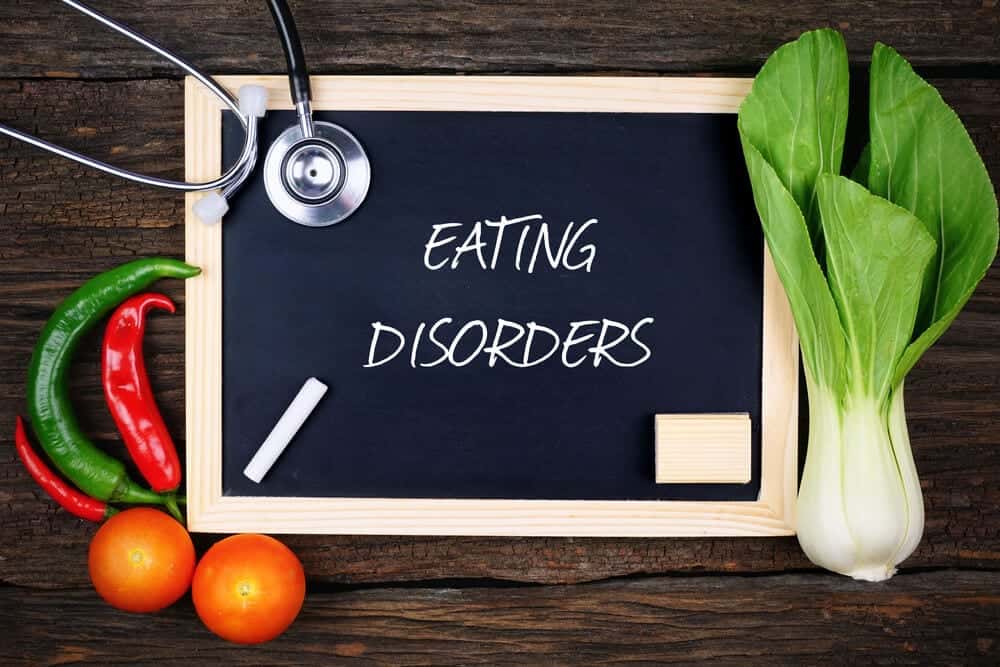
New year, new you! If you’ve already been diagnosed with an eating disorder and are ready to kiss it goodbye in 2020, or if your relationship with your body, food and/or exercise has become distressing to you, it may be time to begin eating disorder treatment.
Starting eating disorder treatment for the first time can be scary but knowing what to expect can help make that fear more manageable. For anyone looking to begin eating disorder treatment this year, here’s what to expect from the treatment process.
Are You Ready to Start Eating Disorder Treatment?
But first, how can you tell if you’re really ready to begin eating disorder treatment? It’s important to remember that no one ever feels 100% prepared to take on a task as daunting as eating disorder treatment.
Many people with eating disorders have been living with their symptoms for so long that their eating disorder behaviors, while still harmful to their overall health and well-being, feel comforting and familiar to them. Letting go of anything that provides you with a sense of stability presents a challenge — but it’s important to undertake treatment when your eating disorder begins to take control of your life.
If you’re still waiting for the right time to recover, know that the perfect time to recover may never come. However, as one patient named Amy wrote for the UK site Beat Eating Disorders, “in order to recover you have to want it.”
Recovery can’t happen until some part of you, even if it’s a tiny part, wants back all the things that your eating disorder has stolen from your life. Whether that’s eating your favorite foods without guilt or shame or participating in a sport you’re no longer physically able to play, hold onto this part of you for the motivation you need to see you through even the most difficult moments of eating disorder treatment.
Building Your Eating Disorder Treatment Team
Ready or not, you’ve decided to take on the task of eating disorder treatment. Congratulations! Now what?
The good news is that up to 60% of people who complete eating disorder treatment will achieve full recovery — or, at the very least, significant improvement. The bad news is that finding and starting eating disorder treatment can feel overwhelming — especially if you don’t know what you’re looking for!
That’s why we’re here to help you. The first step toward recovery is building a team of qualified health professionals to guide you through eating disorder treatment. Here are some of the types of professionals you may want to consult before beginning eating disorder treatment.
Psychotherapist
A psychotherapist has a Master’s or Doctorate degree in social work, mental health counseling or a related field. They may or may not specialize in the treatment of eating disorders, or in a particular type of therapy (more on that later!). At the first appointment, a therapist conducts a full assessment of your mental health. Then, you will continue to meet with them on a weekly, bi-weekly or monthly basis to talk about your problems and setbacks in recovery, as well as to learn helpful coping strategies for reducing eating disorder thoughts and behaviors.
Nutrition Professional
Many eating disorder patients also consult with a nutrition professional, such as a registered dietician or nutritional counselor, as part of their eating disorder treatment program. These professionals have Bachelor’s and/or Master’s degrees in the science of nutrition; some may have also undergone specialized training in the treatment of eating disorders through nutritional counseling. A nutrition professional will help you start eating an appropriate amount of food again, and can help you achieve a healthy weight. They will often create a meal plan for you that outlines exactly what you should be eating during your recovery. They can also help you overcome your fears of certain foods and teach you to cook delicious meals for yourself to bring the joy back into eating again!
Case Manager
Not everyone requires a case manager, but if your insurance requires it or if you are admitted to an inpatient treatment program, you may be assigned one to help guide you through eating disorder treatment. A case manager typically has a Master’s degree in social work and helps you get access to the care you need.
For example, if your insurance does not want to cover eating disorder treatment, a case manager at your insurance company can coordinate with local treatment facilities and eating disorder professionals to find eating disorder treatment that your insurance will be willing to authorize. Call the patient assistance number on the back of your insurance card and request a case manager if your coverage has been denied for eating disorder treatment, or if you feel you may benefit from this type of additional support.
Action Plan for Eating Disorder Treatment
Eating disorder treatment looks different for everyone, making it difficult to know what to expect. However, in general, professionals recommend addressing certain symptoms of eating disorders before others, to help stabilize your condition and get your health under control.
According to the National Eating Disorders Association, this is what a typical action plan for eating disorder treatment looks like, in order of each step’s importance:
- Address life-threatening physical and psychiatric symptoms.
- Interrupt eating disorder behaviors — i.e. bingeing and purging, restriction, excessive exercise, etc.
- Establish normalized eating patterns and nutritional rehabilitation.
- Challenge unhelpful eating disorder-related thoughts and behaviors.
- Address any other ongoing mental or physical health issues.
- Establish a plan to prevent relapse.
Since everyone starts treatment at a different step of the way, talk to your doctor or psychotherapist if you are unsure of your plan of action for eating disorder treatment. They can clear up any questions or concerns you may have about achieving full recovery.
Types of Eating Disorder Psychotherapy
Eating disorder treatment also differs from provider to provider. Every health professional uses a different mode of psychotherapy to interrupt unhealthy behaviors and address unhelpful eating disorder-related thoughts. Below, we detail some of the most popular modes of therapy used in the treatment of eating disorders.
Cognitive-Behavioral Therapy (CBT)
Of all the types of psychotherapy used in eating disorder treatment, CBT is considered the most effective. Cognitive-Behavioral Therapy, or CBT for short, focuses on the intersection between our thoughts, our feelings and our behaviors. Therapists who practice CBT believe our thoughts create our feelings, and that our feelings create our behaviors; thus, by changing our unhelpful thought patterns, we can start to feel happier and undertake healthier behaviors. During CBT, your therapist will likely guide you through exercises to challenge your eating disorder thoughts and teach you skills you can put into practice to interrupt these thoughts so they don’t manifest as eating disorder behaviors.
Dialectical Behavior Therapy (DBT)
Dialectical Behavior Therapy, or DBT, was originally created for use in patients with borderline personality disorder. Now, it is used to treat all kinds of psychological disorders, including eating disorders. DBT providers teach four main coping skills to help patients learn to live with their eating disorders and stop acting on harmful urges: Mindfulness and Goal-Setting, Interpersonal Effectiveness, Emotional Regulation and Distress Tolerance. In women with bulimia nervosa, DBT has proven to be highly effective in decreasing bingeing and purging behavior. According to another study by the National Institutes of Health, DBT is also effective in the treatment of binge eating disorder, with 89% of women studied ceasing binge eating by the end of the study.
Interpersonal Psychotherapy (IPT)
Interpersonal Psychotherapy, or IPT, is a less commonly used mode of eating disorder treatment, but is still highly effective in treating eating disorders like bulimia nervosa. IPT is a highly-structured treatment modality designed to help resolve problems in our interpersonal relationships, focusing on four main areas: Role Disputes, Role Transitions, Unresolved Grief and Interpersonal Deficits. By resolving these relational problems, IPT therapists believe they can help patients decrease eating disorder behaviors, which are often used as dysfunctional coping strategies for dealing with interpersonal relationship problems. Studies have shown that IPT is well-suited for the treatment of eating disorders, particularly in resolving the interpersonal issues that help maintain unhelpful eating disorder behaviors.
Insurance Coverage for Eating Disorder Treatment
So, you’ve decided to pursue one of the types of treatment detailed above. Unfortunately, deciding to seek treatment, and even locating the perfect provider, isn’t the last step before starting eating disorder treatment. It’s often necessary to coordinate with your health insurance company (assuming that you, like most people, are not paying out-of-pocket) to ensure you will receive benefits for your eating disorder treatment.
Many insurance companies will require a referral or prior authorization for medical expenses. Your primary care physician can refer you to a qualified eating disorder specialist who is in-network for your health insurance, eliminating difficulties obtaining coverage. In the event that prior authorization is recovered, a case manager at your treatment facility or physician’s office can submit paperwork to your insurance company to make sure your treatment is authorized for benefits.
Documenting your medical condition to the fullest extent of your ability can help you obtain coverage (or better coverage) for your eating disorder treatment. Request written cost estimates from all providers you see prior to beginning treatment and keep them on file in case your insurance requests them. You should also request a full mental health assessment from your provider before beginning treatment to document your condition and its extent to the best of your ability.
Most treatment facilities and hospitals have a billings and claims department which handles all insurance-related inquiries. We recommend contacting this office at your treatment center to answer any questions you may have about coverage for your eating disorder under your particular health insurance plan.

What to Do If You Are Denied Coverage
Even after going through all of that, your health insurance company may still try to deny your claim for coverage so they do not have to pay for your eating disorder treatment. According to NEDA, common reasons that your insurance provider may deny care include a weight that is not low enough, not trying lower levels of care before requesting higher levels of care, lack of progress in treatment (as documented by your healthcare provider), absence of eating disorder behaviors and lack of medical complications.
However, in the event that your health insurance claim for eating disorder treatment is denied, you still have options for obtaining care. Obtain a copy of your insurance plan’s full list of benefits (this document is available through your insurance company or human resources department, and can be as long as 100+ pages) and review it from cover to cover to ensure you are not wrongfully being denied treatment. You can also call your insurance company and request a case manager to review your health history and help coordinate benefits on your behalf.
If you are a college student who has lost insurance benefits due to dropping below full-time enrollment for treatment purposes or a professional who has lost insurance benefits due to taking time off from work, you may still be eligible for benefits under the Consolidated Omnibus Budget Reconciliation Act (COBRA), which gives people who have lost their health insurance a 30-day period to request coverage. As long as you continue to pay your health insurance premium through COBRA, you should be able to obtain care if you meet all of the government’s eligibility requirements — visit COBRA’s website for details.
If you’re looking for eating disorder treatment at an outpatient facility, look no further than The Meadowglade. We’re a facility with a solid reputation for treating eating disorders and mental health issues and helping people develop healthy coping mechanisms for themselves. We also take most insurances, so reach out to see if we take your insurance and how we can help!
